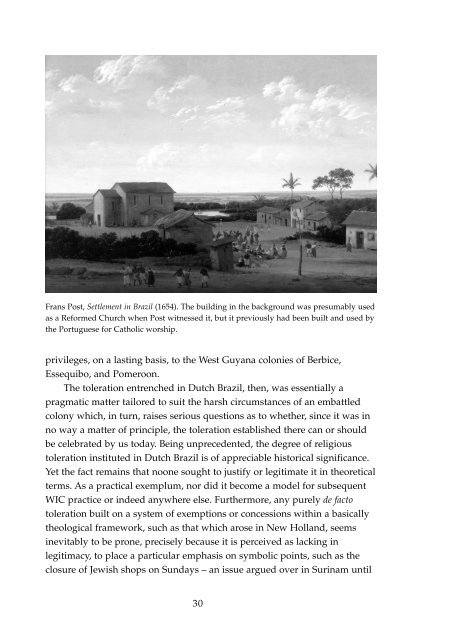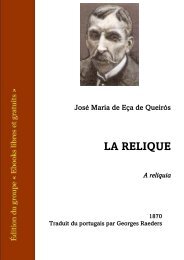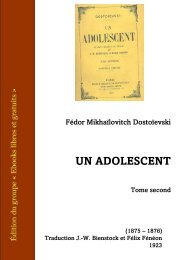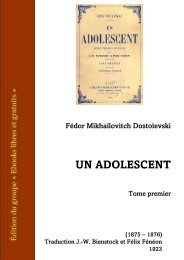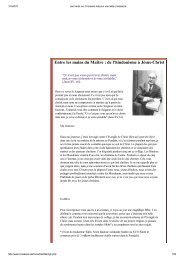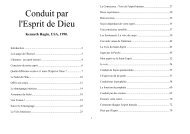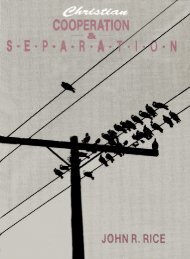The Expansion of tolerance
You also want an ePaper? Increase the reach of your titles
YUMPU automatically turns print PDFs into web optimized ePapers that Google loves.
Frans Post, Settlement in Brazil (1654). <strong>The</strong> building in the background was presumably used<br />
as a Reformed Church when Post witnessed it, but it previously had been built and used by<br />
the Portuguese for Catholic worship.<br />
privileges, on a lasting basis, to the West Guyana colonies <strong>of</strong> Berbice,<br />
Essequibo, and Pomeroon.<br />
<strong>The</strong> toleration entrenched in Dutch Brazil, then, was essentially a<br />
pragmatic matter tailored to suit the harsh circumstances <strong>of</strong> an embattled<br />
colony which, in turn, raises serious questions as to whether, since it was in<br />
no way a matter <strong>of</strong> principle, the toleration established there can or should<br />
be celebrated by us today. Being unprecedented, the degree <strong>of</strong> religious<br />
toleration instituted in Dutch Brazil is <strong>of</strong> appreciable historical significance.<br />
Yet the fact remains that noone sought to justify or legitimate it in theoretical<br />
terms. As a practical exemplum, nor did it become a model for subsequent<br />
WIC practice or indeed anywhere else. Furthermore, any purely de facto<br />
toleration built on a system <strong>of</strong> exemptions or concessions within a basically<br />
theological framework, such as that which arose in New Holland, seems<br />
inevitably to be prone, precisely because it is perceived as lacking in<br />
legitimacy, to place a particular emphasis on symbolic points, such as the<br />
closure <strong>of</strong> Jewish shops on Sundays – an issue argued over in Surinam until<br />
30


